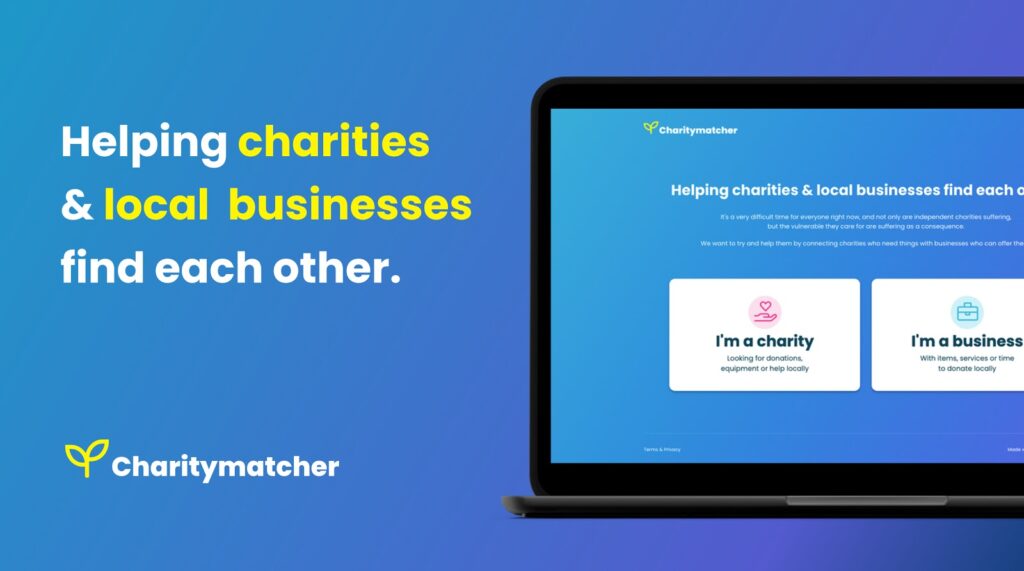NEW STUDY REVEALS SMES COULD BE LOSING UP TO 54% OF ONLINE REVENUE BY NOT UPDATING THEIR WEBSITE

Yell today released new research into how small businesses are managing their online presence in light of the pandemic, and how, as we come out of lockdown in the UK, getting your website right has never been more important.
The research identified an effective online presence as a key driver for sales and enquiries for SMEs. 80% of businesses stated that their website and social media presence were the most important aspects for generating leads and sales, closely followed by digital marketing and branding (both 79%). 34% of businesses stated that they thought their website was unimportant before the pandemic, but now think that it is important and over one in three SMEs (35%) think that their business would not survive without a website.
Consumers are increasingly seeking out businesses online too. On average, 69% of consumers are either likely or very likely to seek out a business online before making a purchase or booking in a service. This trend looks set to continue beyond the pandemic, with 36% of respondents planning to make most of their purchases online following the lifting of all restrictions.
Content is king
Of the 1 million websites analysed, on average, websites were last updated an estimated 15 months ago, revealing that many SMEs are neglecting to update them regularly, with trades and transport websites being the least frequently updated (both 20 months on average).
Yell’s research shows that this could have a direct impact on revenue from online sales, with the study finding that consumers spend 54% less per month on average on websites that have not been updated regularly versus those that have. Moreover, when consumers were asked what element of a business’s website would most likely increase their chances of making a purchase or booking a service with that business, 42% stated that it was a website having up-to-date information.
The most common reason amongst SMEs for not updating or amending their website was a lack of expertise (34% of respondents). 31% of SMEs noted lack of time as a major factor, 30% were afraid of something going wrong that could break their current site and 26% believed they simply don’t have the money to make changes to their website. Interestingly, 51% agreed that it was costly to update their website.
Designed for success
According to SMEs, design is the most important part of their website (48% of respondents) and this is reflected in consumer behaviour too. Half of consumers surveyed stated that they would be less likely to give a website their business if it was badly designed and 41% said they would not use that business again.
However, the analysis of websites showed that 13% of websites contained text too small to be read on a mobile device. Furthermore 34% of businesses had a website with horizontal scrolling on mobile devices, a common complaint amongst mobile users, and nearly 1 in 5 (19%) were not optimised for mobile at all.
Speed is of the essence
With 36% of consumers stating that they would be less likely to give a company their business if their website was slow to use and 9% saying they would even post a negative comment about their experience on social media, site speed is another incredibly important factor for SMEs.
On average, the analysis found that it took 6.7 seconds for a business’s website’s page to go from a blank screen to a visually complete state. The industries with the slowest websites on average, were travel (7.7 seconds), family entertainment (7.7 seconds) and sports and leisure (7.5 seconds). The fastest loading websites identified in the research were pet companies (5.8 seconds), waste businesses (6 seconds) and workshop trades (6.1 seconds).
Claire Miles, Chief Executive Officer of Yell commented:
“It’s been an incredibly tough time for businesses across the country. The pandemic has forced them to adapt quickly and has led to a widespread adoption of digital services at speed. Whilst these digital services have been crucial for businesses to survive the past 16 months, our insights show that this trend towards digital is set to continue long past the pandemic. Therefore, it is crucial for SMEs to be getting their digital strategy right and an effective website will always be at the heart of that.
Our research highlights just how important an effective website is in helping to drive sales and leads, which is why Yell is delighted to have enhanced its website product by teaming up with Wix, combining our digital expertise and customer service with one of the world’s leading web development platforms to create websites that are easy to update, secure and professionally designed.”




